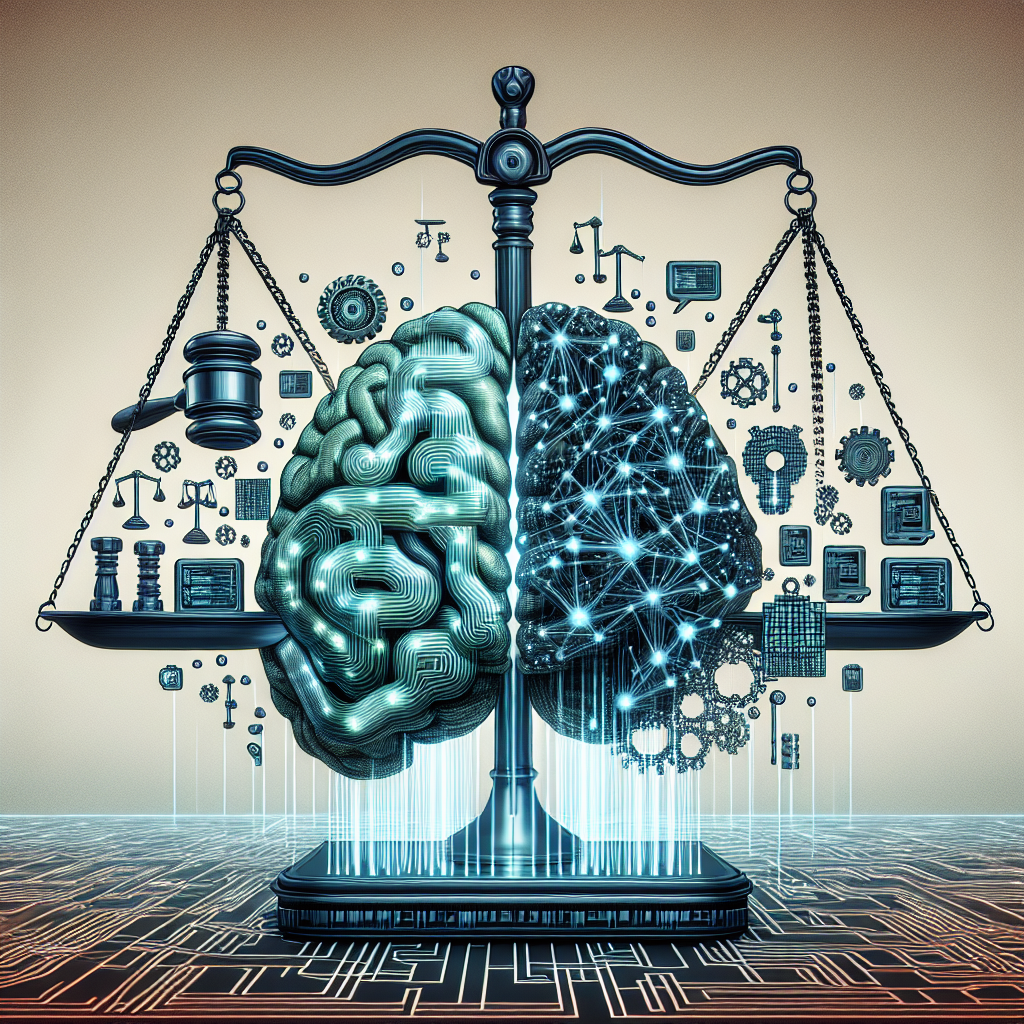The Ethics of AI in Predictive Policing
Artificial intelligence (AI) has become increasingly integrated into various aspects of society, including law enforcement. One of the most controversial applications of AI in policing is predictive policing, which uses algorithms to analyze data and forecast where crime is likely to occur. While proponents argue that predictive policing can help law enforcement agencies allocate resources more effectively and reduce crime rates, critics raise concerns about ethics and bias in the use of AI in this context.
Predictive policing algorithms work by analyzing historical crime data, demographics, weather conditions, and other factors to identify patterns and predict where crimes are likely to occur in the future. This information is then used to inform decision-making processes within law enforcement agencies, such as where to deploy officers and resources. Proponents of predictive policing argue that it can help police departments be more proactive in preventing crime and improving public safety.
However, there are several ethical concerns associated with the use of AI in predictive policing. One of the main issues is the potential for bias in the algorithms used to make predictions. The data used to train these algorithms often reflect historical patterns of policing, which may be influenced by systemic biases and discrimination. For example, if police officers are more likely to patrol certain neighborhoods or target certain demographics, the data used to train predictive policing algorithms may reflect these biases and perpetuate them.
Another concern is the lack of transparency and accountability in the use of AI in predictive policing. Many of these algorithms are proprietary and developed by private companies, making it difficult for outside researchers and the public to understand how they work and assess their accuracy. This lack of transparency raises questions about the fairness and reliability of the predictions made by these algorithms, as well as the potential for abuse or misuse by law enforcement agencies.
Furthermore, there are concerns about the impact of predictive policing on civil liberties and privacy rights. The use of AI in policing raises questions about the extent to which individuals can be targeted or surveilled based on predictions made by algorithms. Critics argue that this could lead to discriminatory practices, harassment of marginalized communities, and violations of due process rights.
In response to these ethical concerns, some cities and states have implemented regulations and oversight mechanisms to ensure that the use of AI in predictive policing is fair and transparent. For example, San Francisco and Oakland have banned the use of facial recognition technology by law enforcement, citing concerns about privacy and civil rights. Other jurisdictions have established oversight boards or committees to review the use of AI in policing and ensure that it is used in a responsible and ethical manner.
Despite these efforts, the debate over the ethics of AI in predictive policing continues to evolve. As technology advances and becomes more integrated into law enforcement practices, it is crucial for policymakers, researchers, and the public to engage in ongoing discussions about the ethical implications of using AI in policing. By addressing these concerns and working towards greater transparency and accountability, we can ensure that the use of AI in predictive policing promotes public safety while upholding civil liberties and human rights.
FAQs
Q: What is predictive policing?
A: Predictive policing is the use of algorithms to analyze data and forecast where crime is likely to occur in the future. This information is used to inform decision-making processes within law enforcement agencies, such as where to deploy officers and resources.
Q: What are some ethical concerns associated with predictive policing?
A: Some of the main ethical concerns associated with predictive policing include bias in algorithms, lack of transparency and accountability, and potential violations of civil liberties and privacy rights.
Q: How can bias in predictive policing algorithms be addressed?
A: Bias in predictive policing algorithms can be addressed by ensuring that the data used to train these algorithms is diverse and representative of the population, as well as implementing oversight mechanisms to monitor and mitigate bias in the use of AI in policing.
Q: What are some examples of regulations and oversight mechanisms for AI in predictive policing?
A: Some examples of regulations and oversight mechanisms for AI in predictive policing include bans on facial recognition technology, establishment of oversight boards, and requirements for transparency and accountability in the use of AI in policing.
Q: What can be done to promote ethical use of AI in predictive policing?
A: To promote ethical use of AI in predictive policing, policymakers, researchers, and the public can engage in ongoing discussions about the ethical implications of using AI in policing, advocate for transparency and accountability in the use of AI, and work towards addressing bias and discrimination in predictive policing algorithms.

